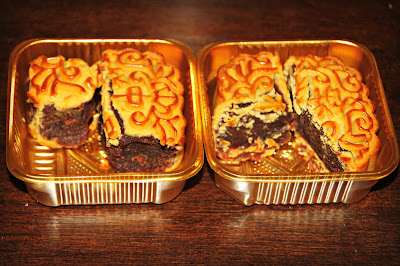If there's one thing I've learned along our adoption journey, it's that the unexpected tough times -- the meltdowns, the tantrums, the defiance, the whining, the over the top emotional responses that take us by surprise -- are really opportunities in disguise. They are opportunities to understand our child. They are opportunities to show love. They are opportunities to
build trust. When our child is hurting and doing everything in his power to push us away, we have a chance to show him once again, that we're not going anywhere. This mom and dad are here to stay.
Last week we had an "opportunity," and of course, it came at an inconvenient time -- a time when I'd have rather been sleeping.
"It hurts! My throat hurts! Make it stop!" It was 1 a.m. and Wenxin could not be consoled.
We weren't surprised because Nathan had been sick for days - sore throat, fever, cough - sick enough that we took him to the pediatrician, something our family doesn't do for every little sniffle. However, the doctor had no magic pills to zap this nasty bug. Like most viral illnesses, it would just have to run its course. When Wenxin began to get sick, we knew he felt awful. We'd been watching Nathan feel awful for days.
Still, Wenxin's reaction seemed a little over the top. As we sat up with him in our family room in the middle of the night, nothing we tried helped.
"I don't want to snuggle! I don't want you to hold me!" Fighting me on the sofa, he arched his back and screamed, " MAKE IT STOP HURTING!"
Mike made him a mug of warm water with honey. "No!" We offered cough drops and throat lozenges. "No!" Finally, he let me feed him a cup of children's ibuprofen. Of course, that stuff doesn't work instantly.
I tried to calm him with my words. "Mama knows you feel bad. I'm not going to leave you while you're sick. You'll get better."
Wenxin responded with . . .more kicking. . . more screaming. . . huge tears.
I prayed softly over him, asking God to heal his sore throat.
Eventually, Nathan wandered into the living room. The noise had woken him up. "I'm afraid something is really wrong with Wenxin," he said. "I'm scared." At only 12 years old, even Nathan knew this was not a "normal" reaction to a sore throat.
We reassured him and sent him back to bed.
"Maybe he has a really low tolerance for pain?" I sort-of-joked out loud. Mike and I both agreed that he was truly sick. We also agreed that all this screaming couldn't possibly be helping, but that point seemed lost on Wenxin. We asked each other, "Where is this over the top reaction coming from?"
Exhausted, I asked Mike to get his guitar. Wenxin screamed while Mike strummed. Mike and I sang praise songs together. In a few minutes, Wenxin's volume went down and he snuggled up with me -- just a bit. Mike, who's a little out of practice, stumbled on some chords, bringing the tiniest of smiles to Wenxin's lips. Finally, around 2 a.m., calm descended on the room, and we were ready for bed.
Stories like this make us scratch our heads. We've come so far. Most days, Wenxin's just another kid in our family. And then something like this happens. . . something that seems really abnormal. . . .at least, really abnormal for a nine year old.
We've been piecing together what we can about Wenxin's history. For whatever reason, sometimes the records you get with an international adoption aren't completely accurate. Wenxin's special need was listed as burn scars, from a severe burn he received,
according to his adoption records, before he was one month old.
Wenxin, however, insists it happened when he was in foster care. He believes he was three or four years old -- old enough to walk and old enough to remember.
He's told us the same story in detail several times. The last time he told me, I said, "You know, Wenxin, when Daddy and I went to China to adopt you, they gave us some papers that told about your life. In the papers, they wrote that you were burned when you were a tiny baby, before you lived with your foster mom."
"Fine." Wenxin said sharply. "I was a baby."
Then, turning to walk away, he mumbled loudly, "LIARS."
On that night, weeks later, as we tried to get Wenxin to calm down and let us comfort him, Mike said, "This makes me think that maybe he does remember being burned."
"What do you mean?" I asked.
"Well, a burn injury is extremely painful. If he has a memory of that time, it might explain his over the top, emotional reaction to any type of pain."
It's a possibility. It's a possibility, although we may never know for sure.
We can, however, be sure that even after a year and a half, we are still in the process of building trust with Wenxin. Kids who are older when they are adopted have probably had their trust broken many times. How are they supposed to know for sure -- not just in words, but deep down in their hearts-- that these new parents are any different? Will we really be there for them when they are sick . . . or upset. . . or out of control?
I think we did OK that night. Finally, around 2 a.m., I asked Wenxin if he'd like to sleep with us, since he was sick. That made him really happy. As we got in bed, he wrapped his arms around me and snuggling up close, had a coughing fit, right in my face.
So I wasn't surprised a few days later when my throat began to hurt and I began to cough. By early afternoon, I decided to take a nap on the sofa. Wenxin brought me his favorite blankets and tucked me in. Made my heart smile. Looks like we're not just building trust. Hopefully, we're building compassion too.



































